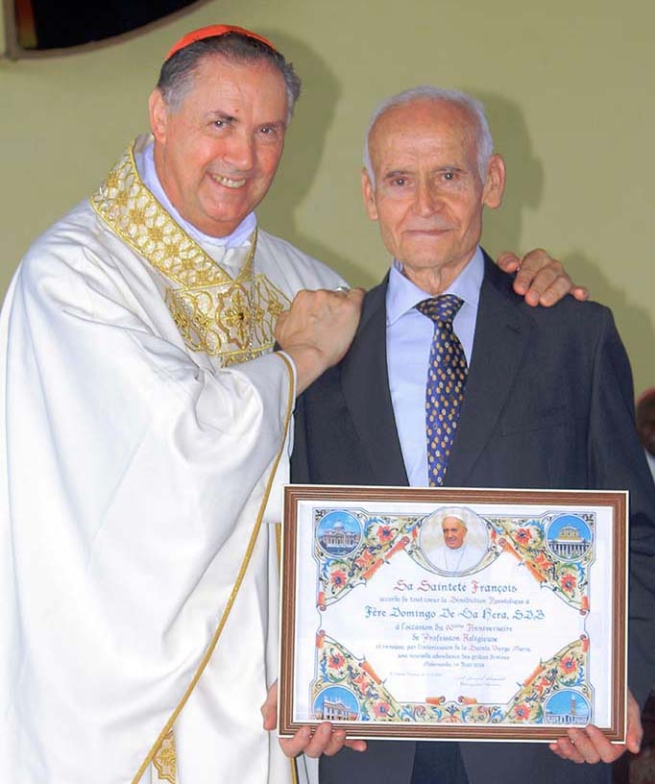The recent incursions, which will be "3 years old in October, without seeing an end", have produced about one million displaced people who "left their land with only what they were wearing." Many of them settled in the fields around the city of Goma or in the house of a relative. "In the sports centers of our Don Bosco centre, between 4,000 and 4,500 families have set themselves up, just over 30,000 people in a rather small field about the size of 3 football fields," said the Salesian.
Life in a refugee camp is "an unprecedented situation and is very instructive", mixing various attitudes. The bewilderment of the adults is combined with their commitment and "tireless activity, especially of the women, to preserve the life of the family", without forgetting to be grateful for what is being done for them "to those they consider to be God's envoys". Meanwhile, the children, with their innocent joy and normality, seem to be out of touch with reality.
De la Hera went on to report that he felt "very welcome", considering himself "as Congolese as well as Spanish" after almost half a century in the African country. "When this emergency occurred, all that was done was to respond to the urgency as best we could," he said.
Once gathered to organise the response, they knocked on the doors of "authorities, international organisations and benefactors" to be able to cover the first needs of the displaced: water, food, health facilities and internal organisation.
"At the health level, cases of cholera appeared," revealed the Salesian. Médecins Sans Frontières quickly took over, overcoming the epidemic after a few weeks. "For the rest, our dispensary takes care of first aid, medicines and other means," Domingo de la Hera continued. The most serious cases are taken to the city hospital. "Of course, there is a higher mortality rate than the normal population," he said.
Regarding food, a weekly plan is made, in which a group of 500 children and some mothers, "the most vulnerable", receive food supplies. "The next week we change sectors, until the whole field has a chance," he said. In addition, periodically, "according to the existing stock", refugees are provided with a survival kit.
Faced with the uncertainty of knowing how long their stay in the refugee camp will last, there is also a plan for students. "So that the students of the last years of primary and secondary school do not lose what has already been achieved", the number of classrooms and teachers has been reinforced, so the Don Bosco centre can continue its operation with the usual activity.
Ángel Lara Tébar
Source: The Debate


